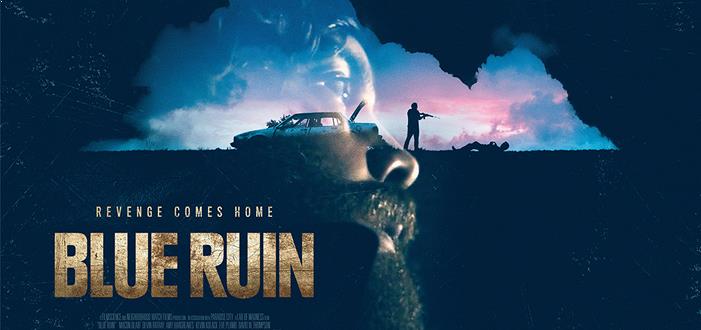
Blue Ruin
What does revenge tell us about the human condition? There is of course the thirst for justice, which I have defined elsewhere as the preservation of righteousness. Revenge is the willful act then of attempting to restore righteousness. Of wronging a right. And immediately we can see the revenge as an act of objective human action is predicated on subjective human values. Righteousness perturbed in one mind seeking retribution may not actually be an astute observation of justice. Vigilantes acting impulsively are therefore punished by taking justice into their own hands. And this is actually a precarious indictment of the knowledge of justice in general. For who are we to even judge the righteousness of the social idea of wronging a right? It is, in other words, quite feasible that a single man acting on his own accord can have a higher ideal of justice than the society which he must serve lest he face its own form of revenge.
Stupendously, the protagonist in the film doesn’t care what will be the end of him when he decides that justice is ending the life of the man who ended his parents. An eye for two eyes. To him, righteousness has been restored, even if it ends up costing him a life behind bars or his life itself. Here, he is appealing to a higher order, something that is beyond his soul. Does that make him noble? Don’t the vulgar also act with revenge? And the answer is yes. Appealing to something higher than oneself does not necessarily mean it is so – it only appeals to an idea that one subjectively has of the Ideal. It can be self-fabricated and hence delusional to act so impulsively. Which is why we can understand the civilizing force of eliminating revenge from human society and placing justice as a social good. It may not be much, but it is better than the alternative, which is what we see vividly on the screen. It is nothing short of the self-mutiliation of mankind caused by a chain reaction of self-defining justice.
Justice then is the most important knowledge for society to pursue. But this is the same as saying that morality is the most important knowledge for an individual to pursue. To know what is right is to know what is good which enables man to trust in the order of his society versus bending to his instinctive whims on creating a just world he imagines but in actuality is inconsistent with The Good. It is then to have faith in God. This itself, however, is not a toleration of evil, only a toleration of the justice system. The protagonist’s passions ought to have been directed toward perfecting this system if he felt that it unduly released his parent’s murderer. Instead he acted as if his idea of justice was the Absolute one.
Grade: A

